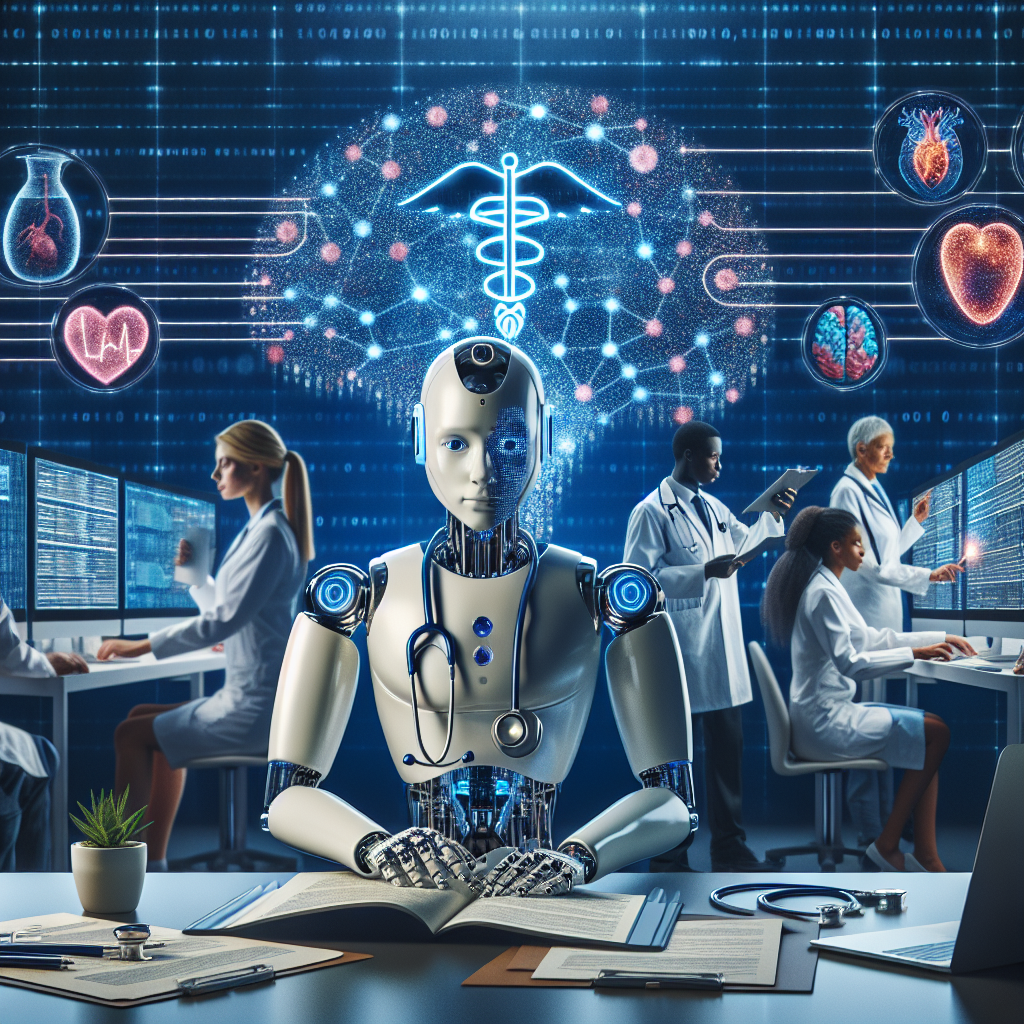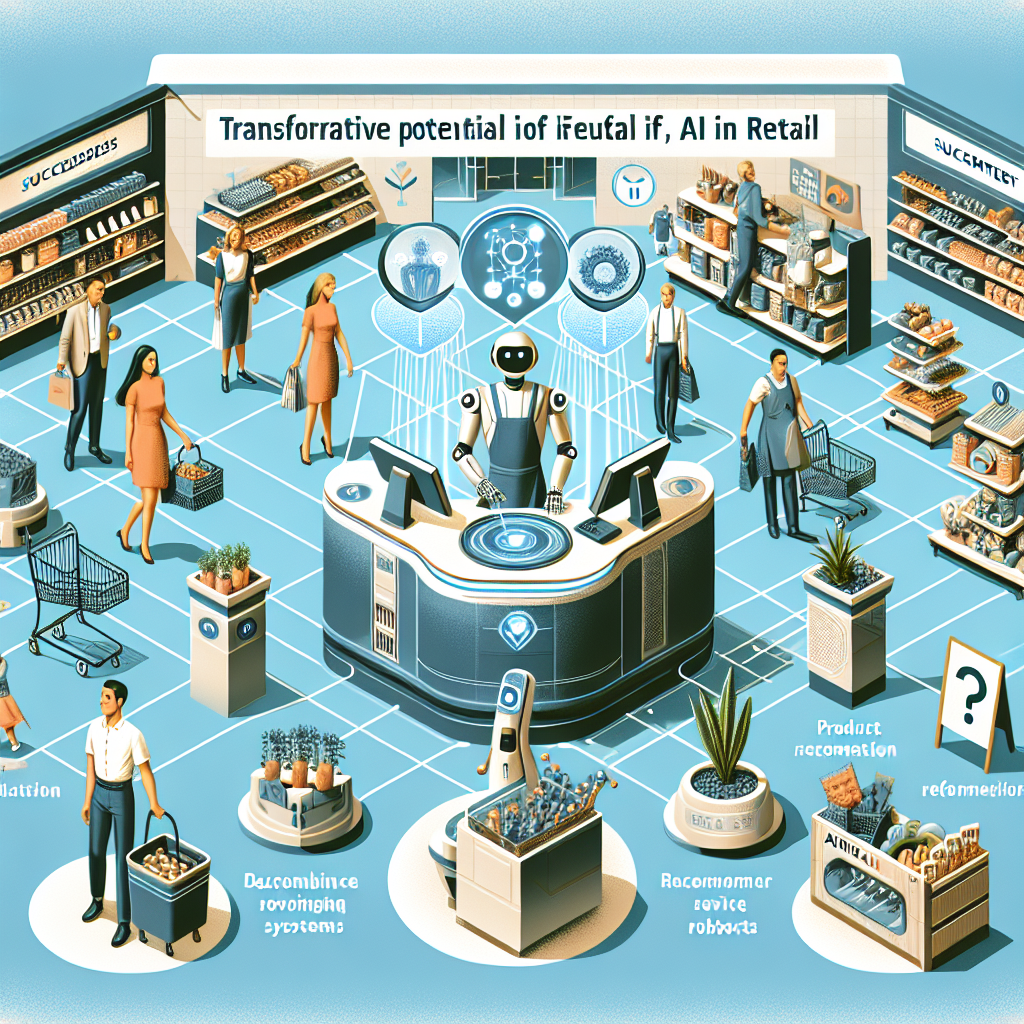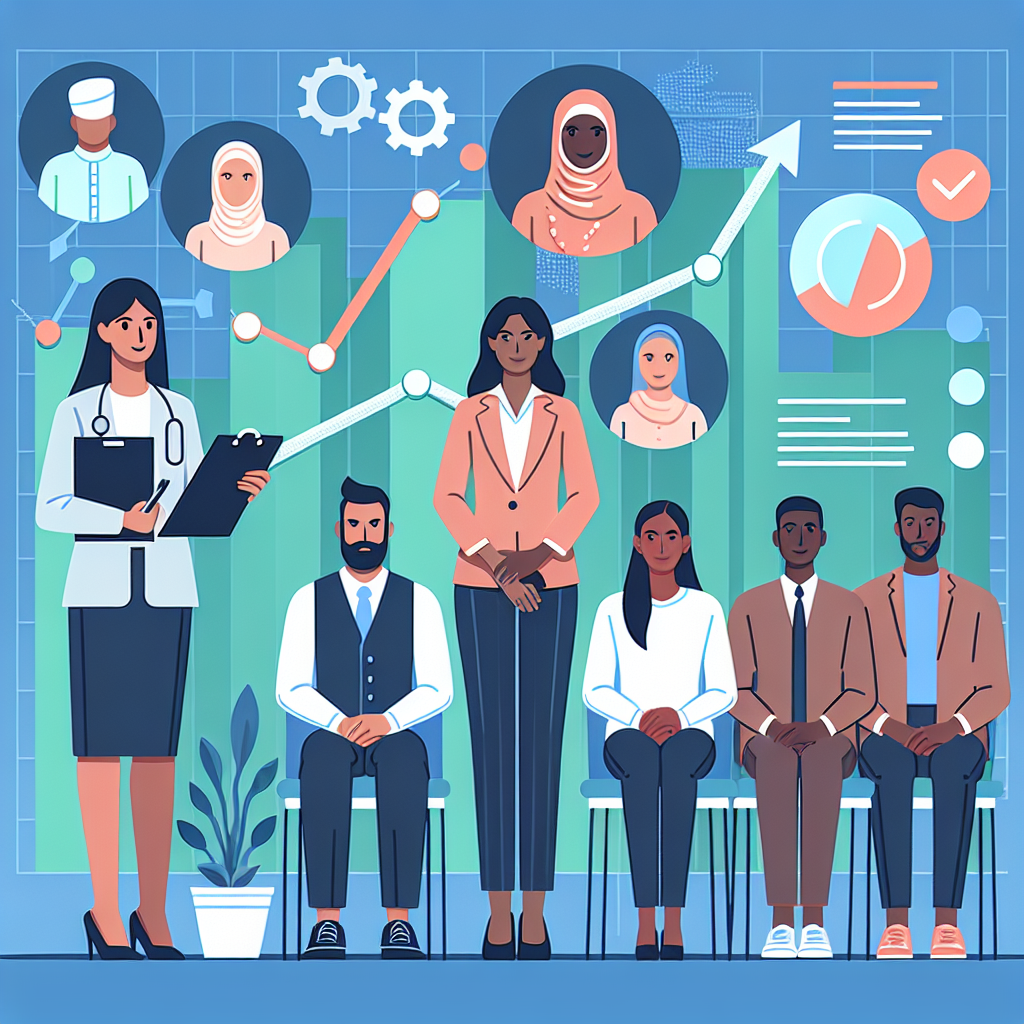AI in Healthcare: Transformative Use Cases, Success Stories, and Challenges

```html
The healthcare industry stands to gain immensely from the application of Artificial Intelligence (AI). From predictive analytics to robotic surgeries, AI is helping doctors and healthcare professionals improve patient outcomes and streamline operations. In this blog post, we will explore various AI use cases in healthcare, share success stories, and discuss the challenges and lessons learned on this transformative journey.
Predictive Analytics for Patient Care
AI is revolutionizing patient care through predictive analytics. Tools like IBM Watson Health and Google Health use machine learning algorithms to analyze patient data and predict potential health risks. This enables proactive intervention and personalized treatment plans.
However, predictive analytics in healthcare is not without its challenges. A healthcare provider faced issues when their AI model incorrectly predicted high-risk patients, resulting in unnecessary tests and costly interventions. This highlighted the importance of continuous model optimization and the need for human oversight to verify AI predictions.
Medical Imaging and Diagnosis
AI is making significant advances in medical imaging and diagnosis. Tools like Zebra Medical Vision and Aidoc utilize AI algorithms to analyze medical images, such as X-rays and MRIs, to detect abnormalities like tumors or fractures with high accuracy.
But, AI in medical imaging also faces hurdles. A hospital experienced setbacks when their AI system failed to accurately diagnose certain rare conditions, leading to misdiagnoses. This emphasized the need for comprehensive training datasets and ongoing validation to ensure reliability and accuracy.
Robotic Surgery
AI is enhancing the precision of surgical procedures through robotic surgery. Systems like the da Vinci Surgical System and Mako Robotic-Arm Assisted Surgery enable surgeons to perform minimally invasive procedures with greater accuracy and control.
However, the deployment of AI in robotic surgery is not without challenges. A surgical team encountered issues when their AI-assisted robot faced difficulties in adapting to unexpected anatomical variations, causing complications. This highlighted the importance of human oversight and collaboration between surgeons and AI systems for successful outcomes.
Virtual Health Assistants
AI-powered virtual health assistants are transforming patient interactions and care management. Tools like Buoy Health and Ada Health use natural language processing to provide patients with medical advice, symptom checks, and healthcare recommendations.
Despite their benefits, virtual health assistants can face limitations. A healthcare provider found that their AI assistant struggled with complex medical queries, causing patient frustration. This underscored the need for a hybrid approach, combining AI-driven initial support with access to human medical professionals for more intricate issues.
Drug Discovery and Development
AI is accelerating the drug discovery and development process. Platforms like Atomwise and BenevolentAI use machine learning to analyze biological data and identify potential drug candidates more quickly and cost-effectively than traditional methods.
However, incorporating AI into drug discovery presents its own challenges. A pharmaceutical company encountered difficulties when their AI model led to false positives, wasting resources on ineffective drug candidates. This highlighted the importance of rigorous validation and collaboration with human researchers to ensure the reliability of AI-generated insights.
Remote Monitoring and Telemedicine
AI is enhancing remote monitoring and telemedicine, providing patients with continuous health monitoring and timely medical interventions. Tools like Current Health and Biofourmis use AI algorithms to analyze data from wearable devices, alerting healthcare providers to potential health issues before they become critical.
Yet, remote monitoring with AI faces challenges. A healthcare provider found that their AI system had difficulties integrating data from different devices, resulting in incomplete patient profiles. This highlighted the need for interoperability between devices and platforms to ensure accurate and comprehensive remote monitoring.
The Future of AI in Healthcare
The future of AI in healthcare appears promising, with expected advancements in personalized medicine, AI-driven clinical trials, and enhanced healthcare data interoperability. AI's capabilities in data analysis, predictive modeling, and automation will continue to drive significant innovations in healthcare.
To fully leverage AI’s potential in healthcare, addressing ethical considerations, ensuring data privacy, and maintaining a balance between AI technology and human expertise are crucial. Collaboration between healthcare professionals, technologists, and policymakers will be pivotal in promoting responsible and effective AI deployment in healthcare.
In conclusion, AI is transforming healthcare through applications in predictive analytics, medical imaging, robotic surgery, virtual health assistants, drug discovery, and remote monitoring. Success stories from tools like IBM Watson Health and the da Vinci Surgical System illuminate AI’s transformative potential, while challenges emphasize the need for continuous refinement and ethical practices. As AI technology advances, its role in healthcare will expand, offering new opportunities for innovation, efficiency, and enhanced patient outcomes.
```



